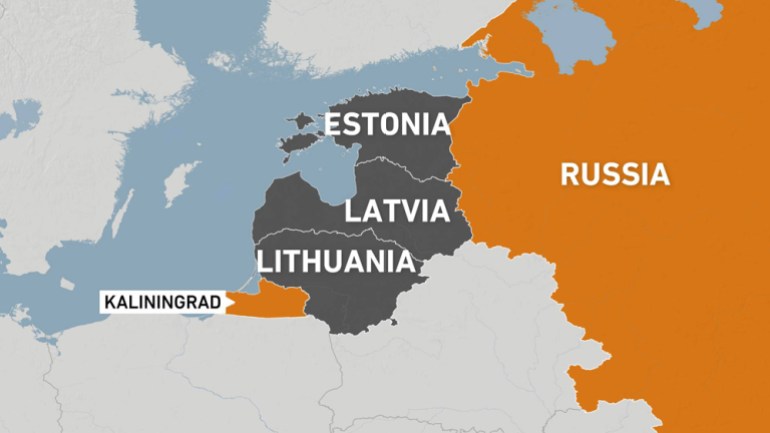Kaliningrad proposes ban on movement of goods from Baltic states
Kaliningrad’s governor says the move would act as a response to the ‘blockade’ by Lithuania.
The governor of Russia’s Kaliningrad region has proposed a total ban on the movement of goods between Russia and the Baltic states in response to what authorities in the exclave have called a “blockade” by Lithuania.
“As a reciprocal measure, we propose to completely prohibit the movement of goods [including those in transit from third countries] between the three Baltic States and Russia,” Governor Anton Alikhanov said, referring to Lithuania, Latvia and Estonia.
“This will provide activities to [our] maritime carriers and give work to Kaliningrad ports, which have been hit hard by the EU restrictions,” he added.

Lithuania on Monday expanded restrictions on trade through its territory to the exclave as phase-ins of earlier announced European Union sanctions against Moscow took effect.
The EU trade restrictions have been upgraded as governments, markets and companies worry Russia could choose to extend the shut-off of the biggest single pipeline carrying Russian gas to Germany beyond a planned 10-day maintenance period.
Test of resolve
Kaliningrad borders NATO and EU member states Lithuania and Poland and relies on railways and roads through Lithuania for most goods.
The coastal territory has been cut off from some freight transport from mainland Russia since June 17 under the EU sanctions regime.
Goods that fall within humanitarian or essential categories, such as food, are exempted from the sanctions.
The dispute over the isolation of Kaliningrad is testing Europe’s resolve to enforce the sanctions amid fears of an escalating confrontation with Russia after other restrictions pushed Moscow to default on its debt.
EU officials, with Germany’s backing, sought in late June a swift compromise to resolve the standoff.
However, sources told the Reuters news agency that Lithuania, once ruled from Moscow within the old Soviet Union, had serious reservations about making what could be seen as a concession to the Kremlin.




